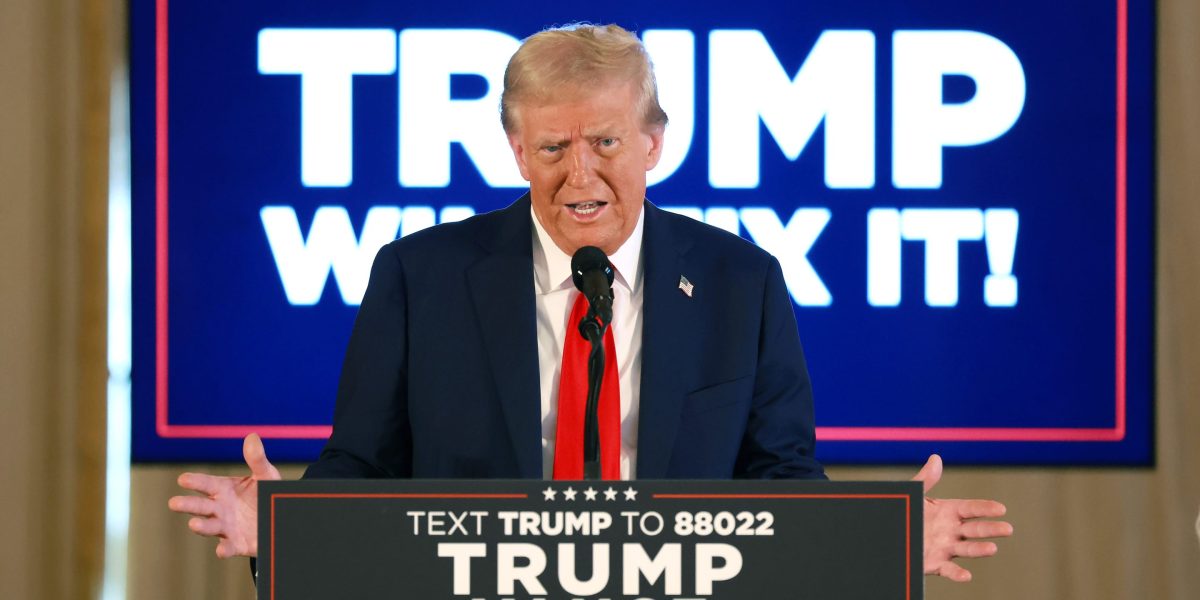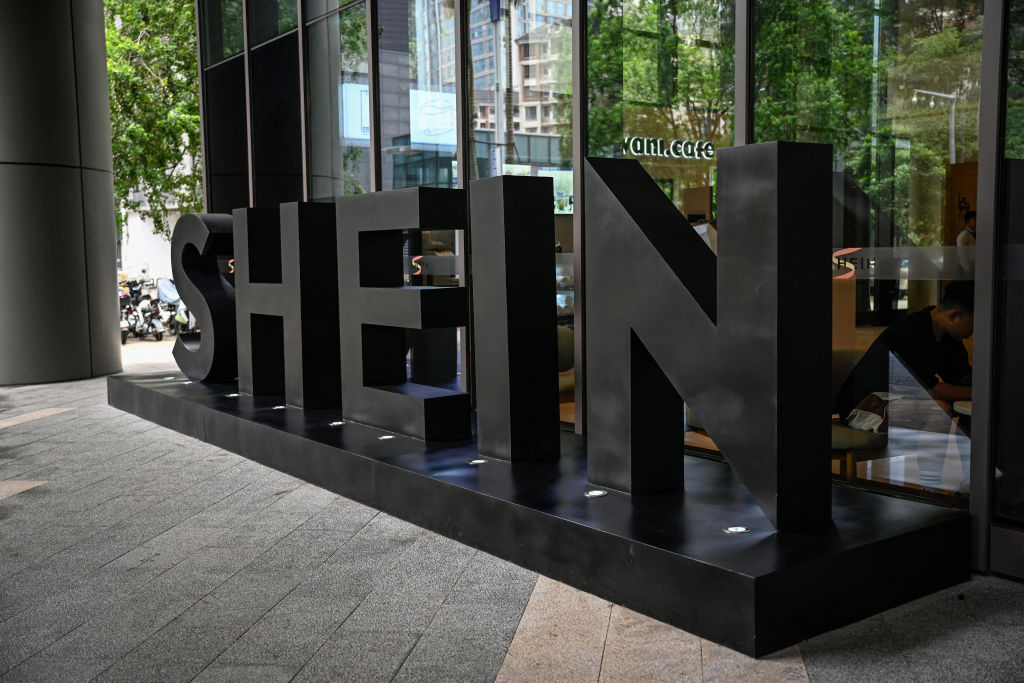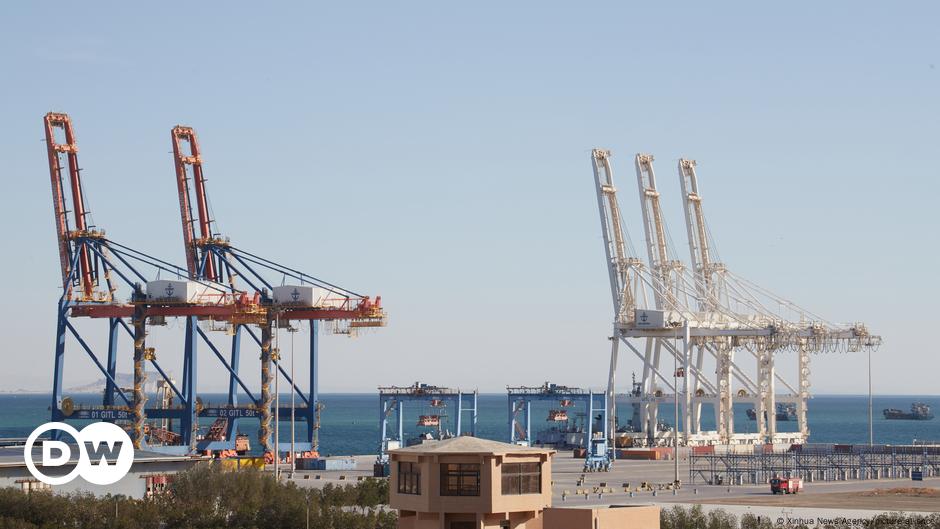- 70 Posts
- 13 Comments

 4·1 year ago
4·1 year ago@neutronst4r, there is a lot wrong with the IMF, but the sad truth is that China’s Belt and Road is much worse. It’s loans come at much worse conditions than those granted by the IMF/World Bank system.

 2·1 year ago
2·1 year agoKenya spends USD 1 billion in a year to repay Chinese loans, burdening taxpayers — (archived version)
[…] cash sent to Beijing [by Kenya] comprised nearly 100.47 billion KES (703 million USD) in principal sums that fell due, and 52.22 billion KES (365.54 million USD) in interest ]…]
The total amount paid represents a 42.14 per cent jump in the previous year, ending June 2023 […]
[According to research lab] AidData, “The terms of Beijing’s loan deals with developing countries are usually secretive and require borrowing from nations such as Kenya to prioritise repayment of Chinese state-owned banks ahead of other creditors.” […]

 2·1 year ago
2·1 year agoI suppose that’s the mechanism they’re using to centrally manage the economy, by controlling fund transfers to lower levels of government.
I would agree with this view. The local governments are responsible for the majority of spendings (including pensions, health care), but they can barely raise funds themselves.
The central government has already said that the new debt will be forwarded to the local government, and that it will be ‘off-budget’, meaning the money goes to LGFVs. The future will tell us how this ends up, but the risks are high imo given the country’s debt burden is so much higher than in most other countries as you suggested.

 3·2 years ago
3·2 years agoYou can’t make such a decision based on simple financial calculations, not in the least as there is no way to make reasonable predictions in our current market environments. Ask any investment advisor, and they will tell you to buy your home if you can afford it.
This is off-topic: Why is the NYT accessing the camera when going to the linked article?

 4·2 years ago
4·2 years ago“we have these “assets” but we aren’t going to tell you what they are because we don’t have to”
Yes, this is exactly what off-balance sheet, OBS for short, means.
Suppose a company has a line of credit at the bank of, say, 1,000,000 dollars, but the credit line comes with a financial covenant stating that the debt-equity-ratio must not exceed 0.5, meaning that the company’s total debt must not exceed half the company’s equity at any point of time.
Suppose now the company wants to buy a new machine on credit, but the costs for this new asset would violate the covenant rule. So the company founds a subsidiary. The subsidiary would then buy the machine to immediately lease it back to the parent company. As the parent company doesn’t legally own the machine, it is not on its balance sheet, meaning the debt-to-equity ratio is fine, but it can control and use the asset (the machine) as it is the company’s subsidiary’s asset.
The company now pays leasing fees (instead of interest rates, had it bought the machine directly on credit), which, of course, stresses its liquidity (very much as it would be in case of a direct credit).
So OBS assets can technically improve ratios, but they are hard to analyze and assess (but they can deceive shareholders and other stakeholders, including authorities, by conveying a higher solvency and liquidity than they actually have).
Large companies and banks have many opportunities to create such OBS. They often create so-called Special-Purpose Vehicles (SPVs) following a similar approach as in our small example. Banks can also move assets through securitization, leaseback agreements, accounts receivables, derivatives.
Don’t get me wrong, there are good reasons to use this tool, but if and when you overdo it, you may not know yourself what risks your entire business actually bears. It becomes incalculable.
And if then, say, you can’t pay back a small loan because investment A went wrong, then investment B that has initially nothing to do with A may also suffer, which then effects C …
[Edit typo.]

 4·2 years ago
4·2 years agoI had similar thoughts when reading the article. Fees of 3 or even 5 percent should be a joke in 2024.

 2·2 years ago
2·2 years agoChinese workers witness biggest decline in hiring salaries on record
Wages offered to Chinese workers in major cities declined by the most on record, underscoring persisting deflationary pressures and sluggish consumer confidence in the world’s second-largest economy.
China has seen widespread salary cuts in various sectors [in 2023] including technology, finance and among local government workers, a result of regulatory crackdowns and strained public finances. Beyond that, companies are also under pressure from weak domestic and overseas demand for their products.

 1·2 years ago
1·2 years agoCryptocurrencies are volatile and awful for the environment
Yes, volatility is bad and likely one reason why it will take a long time until crypto becomes a widely accepted means of payment, and that what it is to me. I consider crypto more as a means of payment (rather than an asset to invest in), and blockchain a good tool for introducing complementary currency systems.
Yes, its not good for the environment, but we should also discuss GAFAM’s data centers, let alone artificial intelligence (which consumes much more energy - Microsoft even announced its plan to use small modular nuclear reactors to help them with their AI ambitions back in the fall).
I feel there is a need for a broader public debate on the ecological impact of our digital life, there is almost no data and research about it. But in principal I agree, we needed to discuss the environmental impact also of blockchain.

 1·2 years ago
1·2 years agoI can’t say something about this politician, but cryptocurrencies aren’t securities, at least most of them. These are decentralized networks, meaning that the classification as securities would effectively ban them in the US as there would be no realistic way for most crypo money to be regulated by the SEC. Acquiring the SEC license is also time-consuming and costly, which means that only a few players in the financial markets would be able to fund crypto projects and/or exchanges, which would again undermine the idea of decentralization.

 3·3 years ago
3·3 years agotalk to your account rep and get some ideas
That’s probably the most important single piece of advice for every new company (and arguably the only one that’s always true). Your accountant will not only know the issues you’re facing in the beginning of your business but also the ones you’ll face as your business grows.

 1·3 years ago
1·3 years agoFiat means decree, and fiat money is a currency that is decreed and backed by the government that issues it, meaning it is not backed by a commodity, such as gold or silver. This kind of currency has a short history as it arrived only in the 20th century (the only exemption were a few years in the 1860s in the US during the civil war, but that aside, fiat money was unknown in human history before 1913/14).
It has its name by the absence of this backing, but it has nothing to do with a threat to end one’s life or a cage or something.

 1·3 years ago
1·3 years agoeveryone will be better off when the banking systems collapse
I think no one would be better off if the banking systems collapse. We needed some reforms, including the fractional reserve system (I’d celebrate the comeback of the gold standard, for example), but no disaster, please.
giving power of currency to a very few people is bad for everyone.
Absolutely, I really couldn’t agree more. In my humble opinion, however, it’s not the power of currency to a very few people but rather the power of the only currency to a very few people which is bad.
This is why I’d say -once again- we need complementary currencies. Each of them will have its own drawbacks, but with a universe comprising fiat money and many alternatives at the local, national and maybe even global level for different use cases we’d be all better off imho.













Let’s continue this great piece of fnancial history with the index fund that turns 50 next year. (Its inventor, Vanguard founder Jack.Bogle, died almost five years ago at 89.)